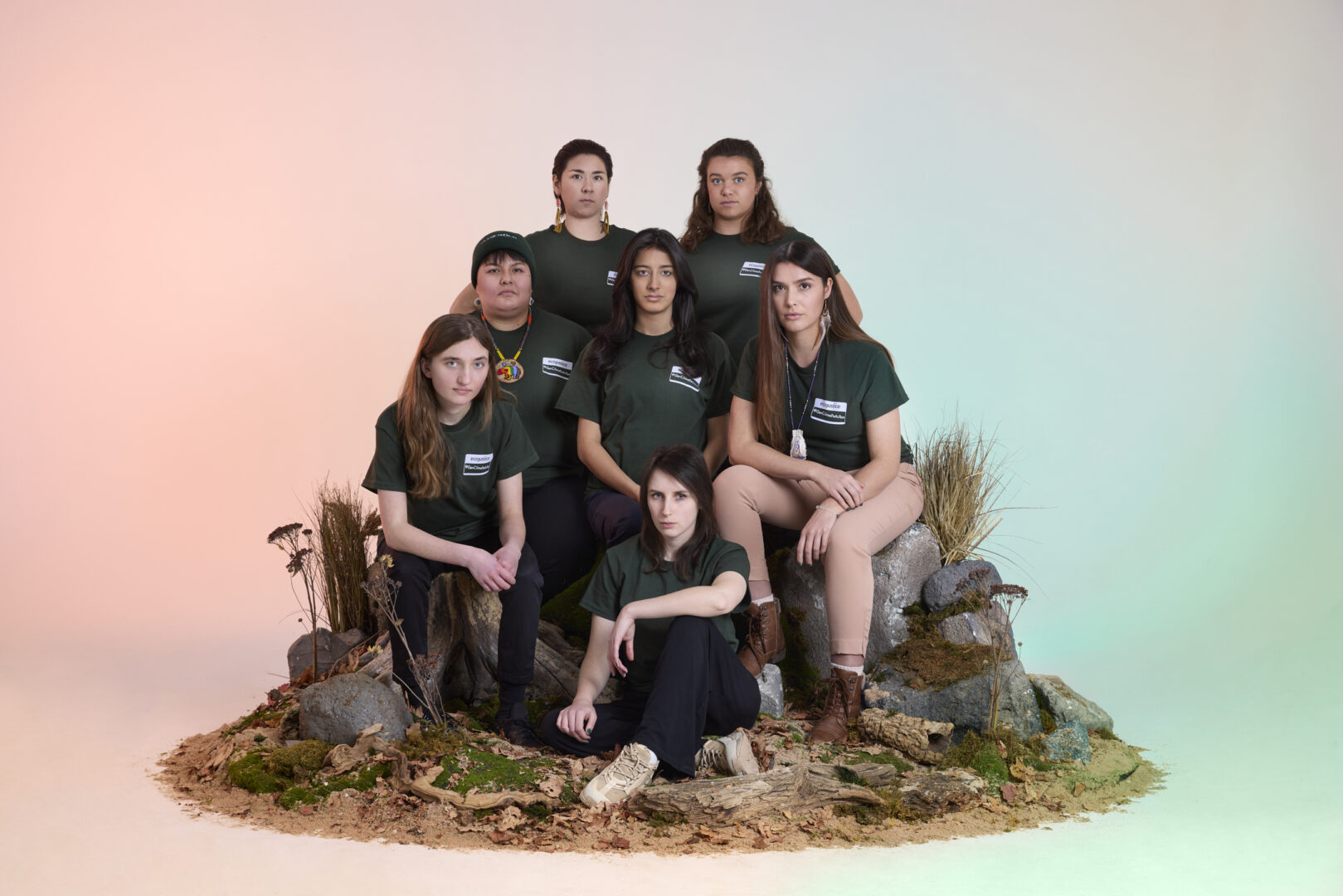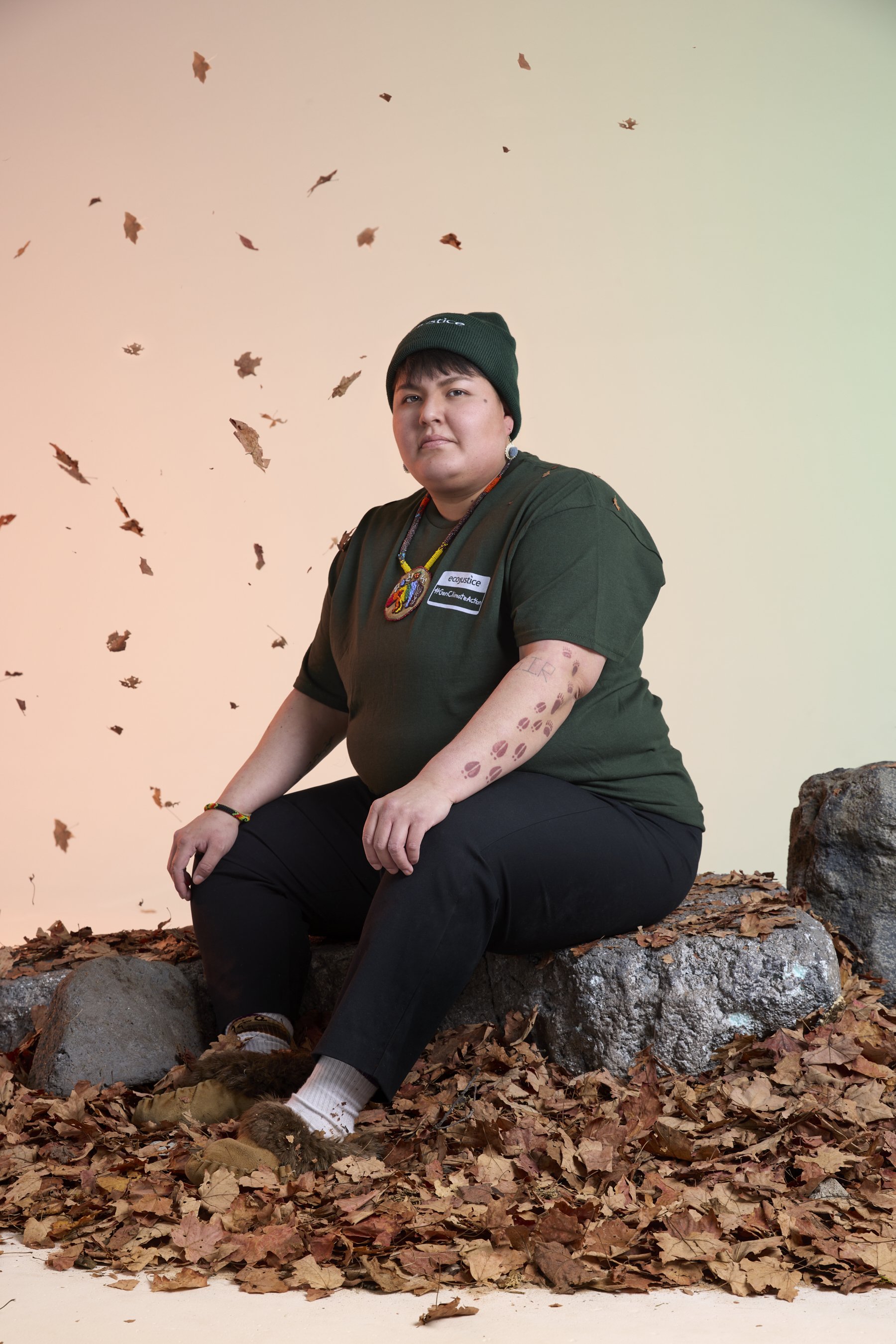Can Canadian youth push federal and provincial governments to take action against climate change? Young people across the world have been fighting to secure a future for themselves and generations to follow not only in the streets but increasingly in courtrooms.
This growing trend of climate legal cases filed by or on behalf of youth under the age of 25 is taken more and more seriously in many countries. In Ontario, seven young people from across the province are challenging the government’s decision to significantly weaken the province’s 2030 climate target. I recently spoke with Beze Gray, one of the young people involved in the case.
In 2019, the Ontario government rolled back the province’s relatively progressive climate targets, replacing them with a single target for 2030. According to Sophia, Zoe, Shaelyn, Alex, Shelby, Madi, Beze, and their lawyers, the new, significantly weaker target, would allow more greenhouse gas emissions to be emitted, further contributing to dangerous climate change-related impacts such as heatwaves, infectious diseases, floods, and fires. This change of target happened after a year of record wildfires in Canada.
“As a two-spirited native from the Aamjiwnaang First Nation, I grew up within the city limits of Sarnia, in Ontario, and our territory is surrounded by Canada’s largest petrochemical refining concentration. I’ve always been interested in learning about the oil industry because I’ve seen the impact it has on my people. Naturally, I got more involved in cultural teachings about land, air, and water. In that sense, I see myself more as a strong protector of the environment rather than an activist,” explains Beze.
As the young leader puts it, their people are surrounded by 40 per cent of Canada’s petrochemical refineries and their territory is considered to have one of the highest air pollution levels in Canada, putting Aamjiwnaang First Nation at a disproportionately higher risk of contracting pollution related illnesses and side effects.

Youths taking Ontario Premier Doug Ford to court over climate pose for a photo in advance of legal hearing. (Credit: Tilly Nelson. Set Design Kendra Martyn & Kira Evenson)
Challenging the Ontario government over climate action rights
So, in November 2019, Beze and six other young climate leaders, backed by lawyers from Ecojustice and Stockwoods LLP, launched a legal challenge over the government’s new target. The Mathur et al. v. Ontario case is based on the grounds that the government’s actions will harm young Ontarians and future generations and have violated their Charter rights to life, equality, and security of person under sections 7 and 15 of the Canadian Charter of Rights and Freedoms. “Since we all come from different parts of Ontario, we represent a diverse range of situations and I think it made our case even stronger” adds Beze.
But the decision to go to court was not an easy one for the young leader. “For me, it wasn’t easy. As a native, I know that my people’s rights haven’t been respected by the Canadian justice system. It really scared me but I asked my elders and took the decision to be part of the group” she says.
Canadian precedent on climate change violation
On April 15, 2020, the government filed a motion to strike the case, arguing it should not proceed to a full hearing. But the youth applicants countered this motion at a hearing in July the same year, leading to a historic win when the government’s motion was dismissed in November. For the first time in Canadian history, a court recognized that climate change has the potential to violate Charter rights and gave the youth the greenlight to move ahead to a full hearing. In other words, it was the closest a Canadian Court had come to recognizing climate justice based rights as constitutional rights which is something that other cases are a trying to make happen in the world, according to a UN report.
Then, the government tried again to overturn this ruling but was dismissed by the Ontario Divisional Court in March 2021. After becoming the first case of its kind to clear key procedural hurdles, the case proceeded to a full hearing before the Ontario Superior Court in September 2022.
After several years of successfully overcoming procedural challenges, the Ontario Superior Court dismissed the youths’ case in April 2023. Justice Marie-Andrée Vermette who was in charge of the case did not find that Ontario’s target was unconstitutional and did not order the government to set a new science-based target.
While the application was dismissed, the decision cleared some major hurdles to set an important precedent for climate litigation in Canada, according to the lawyers. As Beze puts it: “Even if the case was dismissed, we still raised awareness about how Ontario’s target harms future generations. This aligns a bit with some of Aamjiwnaang teachings. We are taught to learn from the seven generations before us and look after the seven generations to come. There is no Canadian law that states this but the fact that we brought this idea to the court is a small steps towards a better future and in that sense I feel like our case is already very influential.”
Although she dismissed the case, Justice Vermette agreed with the applicants on several key points. For example, she agreed that Ontario’s target “fell severely short” of what the scientific consensus requires, and this increased the risk to Ontarians’ life and health. She also rejected Ontario’s arguments that its emissions were globally insignificant.

Beze Gray, one of the youths taking Ontario Premier Doug Ford to court over climate action rights. (Credit: Tilly Nelson. Set Design Kendra Martyn & Kira Evenson.)
The decision broadly accepted the science set out in reports by the Intergovernmental Panel on Climate Change (IPCC), while delivering a withering critique of Ontario’s evidence. Justice Vermette stated: “I find that the IPCC reports are a reliable, comprehensive and authoritative synthesis of existing scientific knowledge about climate change and its impacts. I reject any suggestion to the contrary by Ontario’s experts whose credentials do not measure up to those of the IPCC.”
On January 15 2024, the youth-led group decided to go to the Court of Appeal. “When we learned that our case was dismissed, we checked-in with everyone to make sure we all wanted to move forward. That’s something I really appreciate about the group; we care a lot about each other,” emphasizes Beze. Although they still work mostly outside of courtrooms and are very active in land and water defence work, they believe “every way is valuable and that there is several ways to be heard and to make sure that our environment and people’s rights are respected and taken care of. I would say, everyone should try as many ways as they can to fight for what is right.”
Beze and the other young leaders are still waiting for the decision from the Court of Appeal which should arrive by the end of the year. “I hope we will win the case and force the government of Ontario to change their target. I already see how this case is impactful and is challenging charters rights. It’s creating a precedent for future cases and in this way it’s already a small win.”

Andreia Portinha Saraiva is a freelance journalist from Switzerland currently spending time in Canada. EJ’s NextGen Perspectives column helps provide an inclusive look at the various youth voices involved in the environment industry.
Featured image credit: Getty Images









